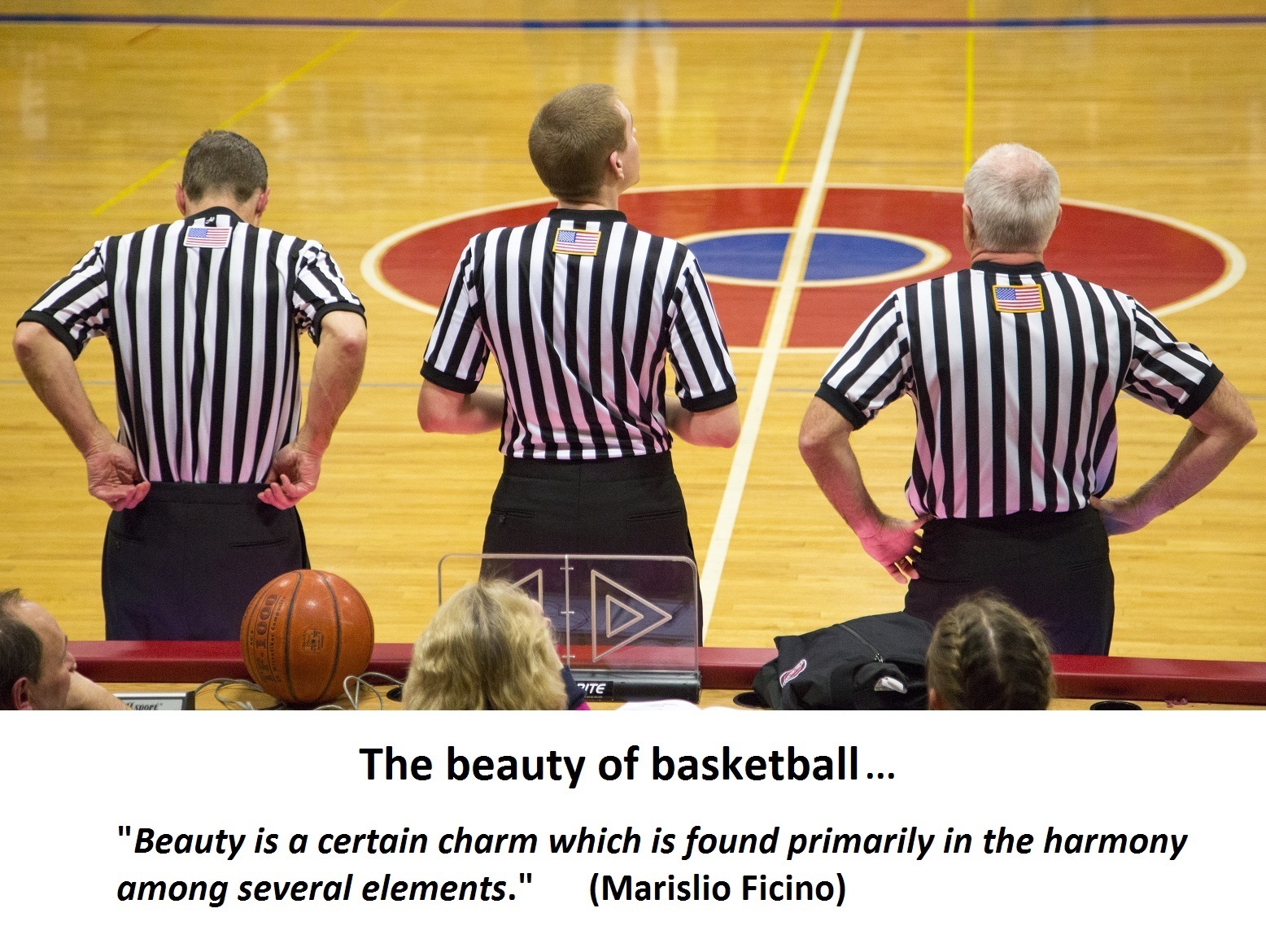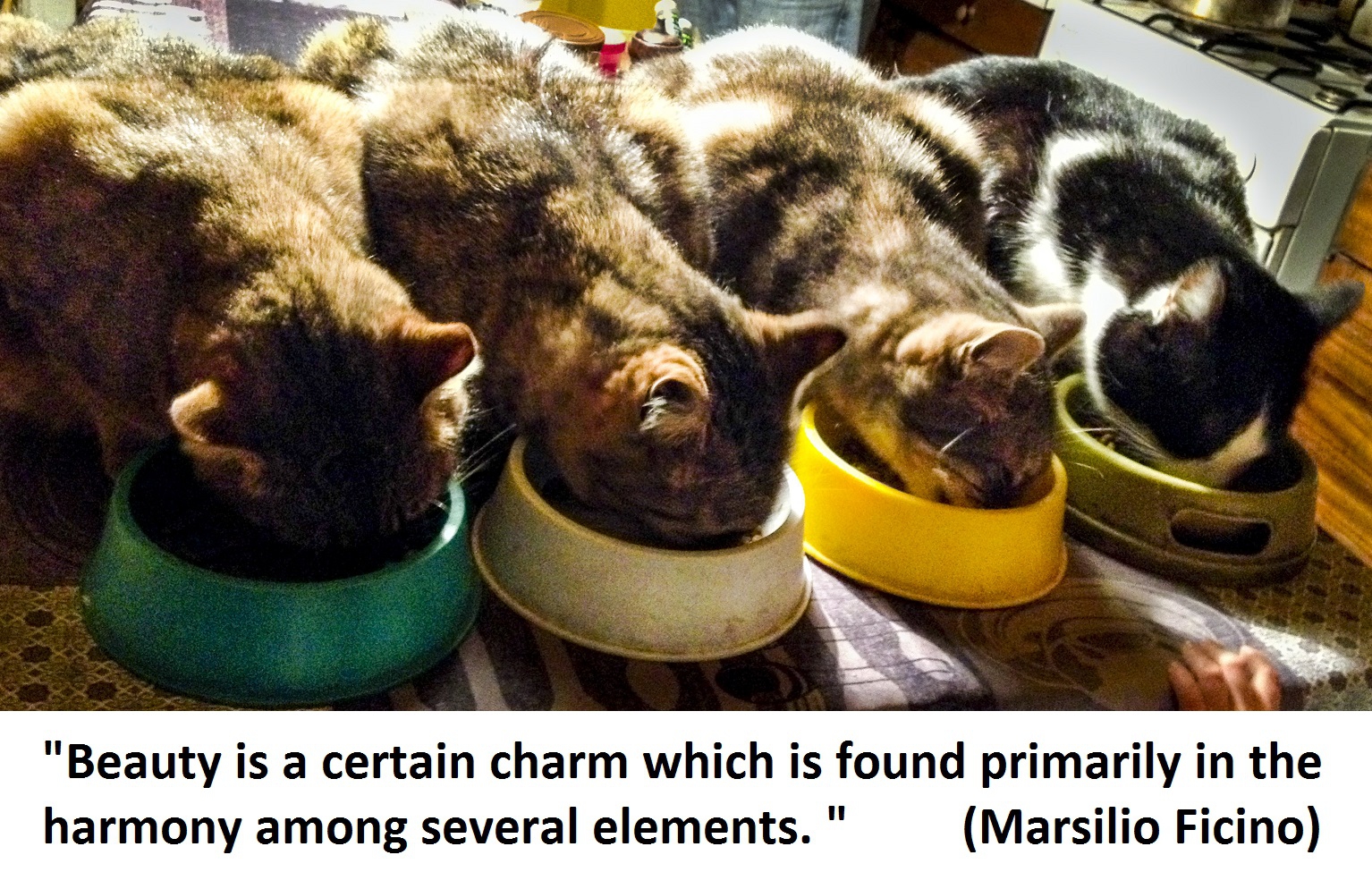|
Beauty is the harmony which love desires
 Marsilio Ficino (1433-1499) was a major Italian Neo-Platonist philosopher of the Renaissance. He was born near Florence, spent most of his career under the patronage of the Medici family, and was also the tutor of Lorenzo the Magnificent. For Ficino, the task of the philosopher is to interpret and develop historical treasures of wisdom, since wisdom gradually manifests itself through history. He saw himself as a Platonist, although he went far beyond Plato’s doctrines. When Ficino was about 40-years-old, Cosimo de’ Medici made him the head of a new Platonic academy, which served to educate the youth and as a meeting point of intellectuals. Ficino wrote several influential philosophical works, among them translations into Latin of Plato and of Plotinus, which became standard translations in Europe for three centuries. Marsilio Ficino (1433-1499) was a major Italian Neo-Platonist philosopher of the Renaissance. He was born near Florence, spent most of his career under the patronage of the Medici family, and was also the tutor of Lorenzo the Magnificent. For Ficino, the task of the philosopher is to interpret and develop historical treasures of wisdom, since wisdom gradually manifests itself through history. He saw himself as a Platonist, although he went far beyond Plato’s doctrines. When Ficino was about 40-years-old, Cosimo de’ Medici made him the head of a new Platonic academy, which served to educate the youth and as a meeting point of intellectuals. Ficino wrote several influential philosophical works, among them translations into Latin of Plato and of Plotinus, which became standard translations in Europe for three centuries.
The following passages are adapted from Ficino’s book A Commentary on Plato, in which he develops a philosophy of beauty and of love that is rooted in certain Platonic ideas. Love, Ficino explains, is the desire for beauty, and beauty is a harmony that produces an image of inner goodness. Since it is based on an image, beauty is not always accurate, so that there is true love and false love. If we find ourselves attracted to somebody who is not good, then this is not true love of beauty, but something else. True beauty makes us want to be beautiful and good.
from First Speech, Chapter 4
When we say “love” we mean the desire for beauty, because this is the definition of love among all philosophers. Beauty is a certain charm which is found primarily in the harmony among several elements. This charm is threefold: there is a certain charm in the soul – in the harmony of several virtues; charm is also found in material objects – in the harmony of several colors and lines; and similarly, charm in sound is the best harmony of several tones. There is, therefore, triple beauty: of the soul, of the body, and of sound. […] Love seeks the enjoyment of beauty, and beauty is related only to the mind, sight, and hearing. Love, therefore, is limited to these three, and a desire which rises from the other senses is not love but lust or madness.
 Further, when love desires human beauty, then since the beauty of the human body consists in a certain harmony, and since harmony is a kind of temperance, it follows that love seeks only what is temperate, moderate, and well-behaved. Pleasures and sensations that are impulsive and irrational unbalance the person’s mind, and are not what love wants, but rather what it hates and avoids, because they are the opposites of beauty. Lust drags a person down to greed and disharmony, and therefore attracts him to ugliness, whereas love attracts beauty. Further, when love desires human beauty, then since the beauty of the human body consists in a certain harmony, and since harmony is a kind of temperance, it follows that love seeks only what is temperate, moderate, and well-behaved. Pleasures and sensations that are impulsive and irrational unbalance the person’s mind, and are not what love wants, but rather what it hates and avoids, because they are the opposites of beauty. Lust drags a person down to greed and disharmony, and therefore attracts him to ugliness, whereas love attracts beauty.
from Fifth Speech, Chapter 1
There is both an interior and an exterior perfection: the interior we call goodness, and the exterior we call beauty. […] We notice this distinction in everything. For example, in precious stones, as the natural philosophers claim, a well-balanced combination of the four elements in the interior produces a brilliance of the exterior. […] Likewise, virtue of the soul is expressed most clearly through beauty in words, in actions, and in deeds. The heavens, too, are bathed in brilliant light through their own sublime essence.
In all these cases, an internal perfection produces the external perfection. The former we call “goodness,” the latter “beauty.” This is why we say that beauty is the blossom of goodness. This blossom attracts like a bait, so that the hidden interior goodness attracts those who see it. But since the understanding of our minds originates from the senses, we would never know and never desire the goodness that is hidden in the inner nature of things, unless we were led to it by its exterior appearance. This is the wonderful usefulness of beauty, and of the love that is associated with it.
These examples, I think, show that there is much difference between real goodness and its mere appearance, like between a seed and its flower. Just as the blossoms of trees grow from the seeds and also produce seeds, the same is with beauty which is the blossom of goodness: Since it grows out of goodness, it leads those who love it to the good.
Chapter 5
 The appearance and the shape of a well-proportioned person agrees with the idea of humankind which our soul receives from the author of everything. Therefore, if an image of a person, received through the senses and going into the soul, disagrees with the idea of person which the soul possesses, he immediately displeases us, and we dislike him as being ugly. Therefore, it happens that some people, when they meet us, immediately please or displease us, and we do not know why. And naturally so, since the soul, preoccupied with the body, does not reflect on the Ideas which are innate in us. The appearance and the shape of a well-proportioned person agrees with the idea of humankind which our soul receives from the author of everything. Therefore, if an image of a person, received through the senses and going into the soul, disagrees with the idea of person which the soul possesses, he immediately displeases us, and we dislike him as being ugly. Therefore, it happens that some people, when they meet us, immediately please or displease us, and we do not know why. And naturally so, since the soul, preoccupied with the body, does not reflect on the Ideas which are innate in us.
|


 Further, when love desires human beauty, then since the beauty of the human body consists in a certain harmony, and since harmony is a kind of temperance, it follows that love seeks only what is temperate, moderate, and well-behaved. Pleasures and sensations that are impulsive and irrational unbalance the person’s mind, and are not what love wants, but rather what it hates and avoids, because they are the opposites of beauty. Lust drags a person down to greed and disharmony, and therefore attracts him to ugliness, whereas love attracts beauty.
Further, when love desires human beauty, then since the beauty of the human body consists in a certain harmony, and since harmony is a kind of temperance, it follows that love seeks only what is temperate, moderate, and well-behaved. Pleasures and sensations that are impulsive and irrational unbalance the person’s mind, and are not what love wants, but rather what it hates and avoids, because they are the opposites of beauty. Lust drags a person down to greed and disharmony, and therefore attracts him to ugliness, whereas love attracts beauty. 